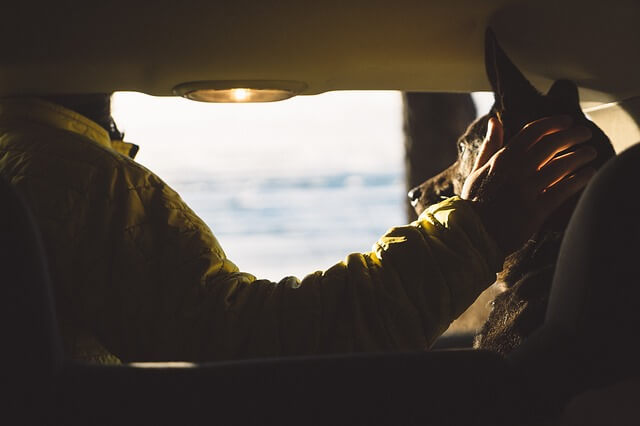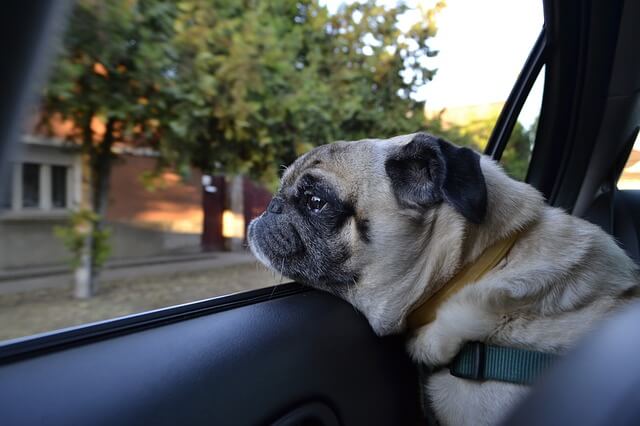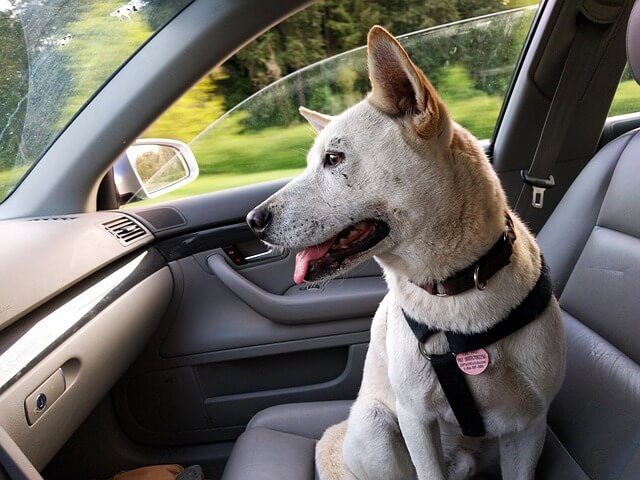An estimated one in six dogs suffer from car sickness during travel, but driving with your dog is necessary for maintaining their health and enjoying new adventures together. After all, vet visits are a must and outings to the beach just aren’t the same without the family pup.
So how do you help your dog manage this unpleasant problem?

The nausea, drooling, shaking and anxiety seen during car travel may be caused by the balance mechanism within the ear or just plain old fear of the vehicle’s strange sights, sounds, smells and sensations.
True motion sickness is far more common in puppies, just as it is more common in children than adults. The reason is that the ear structures that control balance are not yet fully mature, causing a sensation similar to vertigo during travel.

Most dogs will outgrow this unpleasant problem, but others struggle with driving-related nausea all their lives. Even after the ears have fully matured, they may still associate car rides with nausea and vomiting, having been conditioned by their early negative experiences.

Several simple tricks can reduce nausea during travel:
- Limit food consumption for several hours before a trip
- Give a small sugary treat like a jellybean (no chocolate or xylitol!) just before heading out
- Always have your dog face forward in the vehicle to help prevent nauseating visual cues
- Make sure the vehicle is cool and well-ventilated
- Crack the windows to balance the air pressure in the car with that outside the vehicle

Reconditioning an anxious or fearful pup to enjoy – or at least tolerate – the car is a bit more complicated. In order to break the association between riding in the car and stress/nausea experts recommend you:
- Give your dog a week or two off from all car travel
- Change vehicles to avoid association with past unpleasant experiences
- Use treats to make the car a fun place for your dog – but be careful not to overdo it!
- Provide special toys your dog only has access to in the car
- Gradually build your dog’s tolerance to car trips

For dogs that do not respond to reconditioning techniques, drugs may be necessary. There are a variety of over-the-counter and prescription drugs on the market to treat the symptoms of motion sickness and anxiety associated with travel.
Just as every human’s response to medication is different, the same is true for our dogs. Dramamine may do wonders for some, while others need something stronger. Always consult your veterinarian before starting any new medication.
 Toledo, United States.
Toledo, United States.